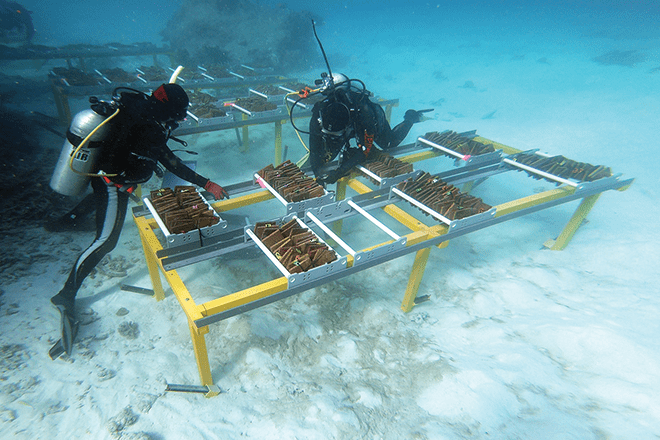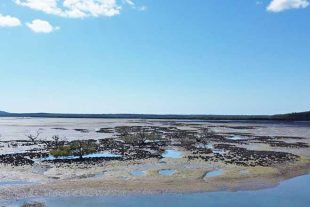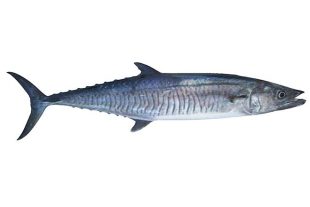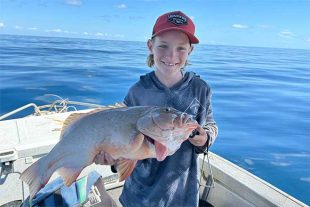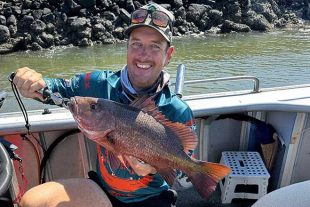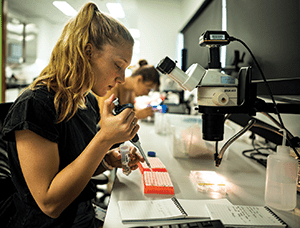
A TOWNSVILLE scientist is undertaking new research to investigate the best way to produce diverse corals that might be used to restore and maintain healthy coral reefs.
Researcher Annika Lamb has mixed the eggs and sperm of multiple corals together and is using genetic markers to identify the parents of the larvae produced. “We recently collected corals from the field and crossed their eggs and sperm during spawning to create the coral larvae,” she said.
“These parentage experiments are relevant to reef restoration if we can identify and then grow brood stocks that can generate diverse corals to choose from for restoration initiatives.” The work by University of Melbourne postgraduate student Annika Lamb is supported by the Great Barrier Reef Marine Park Authority through a Reef Guardian Research Grant.
The Authority’s Reef Knowledge director Dr Roger Beeden praised the innovative work of early career scientists who received these grants.
“We’re delighted to provide these grants to assist students undertaking research projects to improve the future management of the Reef,” Dr Beeden said.
“Ms Lamb’s work is exactly the kind of innovative science we support – practical, forward-thinking and targeted at enhancing our knowledge of the ecosystem. “Given the pressures facing the Reef, we need to consider all options for active intervention that could enhance the natural resilience of corals to a changing climate and we look forward to seeing the results of Ms Lamb’s work.”
Ms Lamb conducts her research at the Australian Institute of Marine Science’s National Sea Simulator, under the guidance of AIMS’ senior principal researcher Prof Madeleine van Oppen, as part of important reef restoration and adaptation research. Ms Lamb is one of seven postgraduate student recipients of the annual Reef Guardian Research Grants – from James Cook University, University of Queensland,
Griffith University, Macquarie University, Southern Cross University and the University of Melbourne. The successful research projects cover a range of topics such as coral genomics, species management, impacts of microplastics in the marine environment, water quality improvement and development of tools to better predict bleaching risk.
The awards provide funding from $1000 to $5000 and are open to students working towards a doctorate or master’s degree in the physical, biological and social science disciplines throughout Australia. A full list of award winners is available on gbrmpa.gov.au
For more than 40 years, the Marine Park Authority has supported a number of students early in their career, with more than 300 grants awarded on topics related to addressing key threats to the Reef.
 Bush ‘n Beach Fishing Magazine Location reports & tips for fishing, boating, camping, kayaking, 4WDing in Queensland and Northern NSW
Bush ‘n Beach Fishing Magazine Location reports & tips for fishing, boating, camping, kayaking, 4WDing in Queensland and Northern NSW

